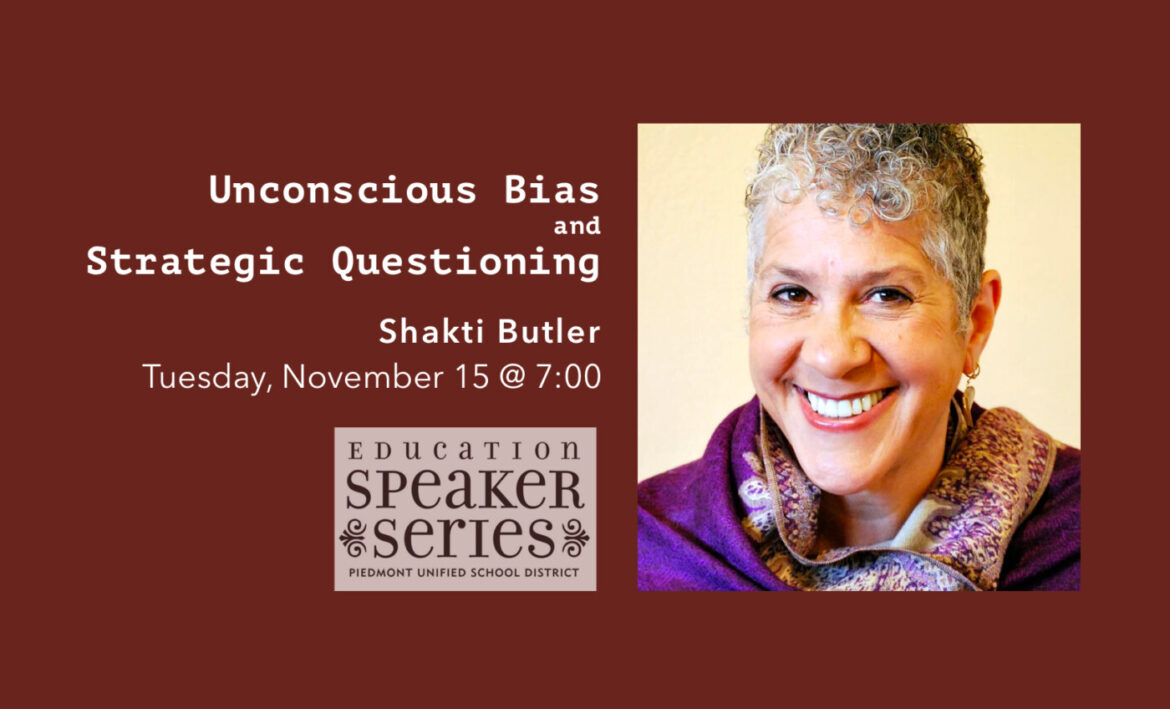Dr. Shakti Butler will speak about Unconscious Bias through Strategic Questions: a Strategy for Building Equity Internally and Externally as part of the Education Speaker Series at 7 p.m. on Nov. 15 at the Alan Harvey Theater.
Butler is an educator, filmmaker, and founder and creative director of World Trust, an organization working to advance social justice and racial equity with special focus in education, health, media/culture, and technology. “Strategic questioning” is a technique and skill-building practice that stimulates new ideas and fosters conversations.
Butler will integrate strategic questioning into two presentations to the Piedmont High School community; one for young people, another for adults (the Nov. 15 evening program).
“We don’t have to agree with one another but we can delve more deeply into our belief systems while expanding our curiosity,” says Butler. “I’m also going to do some context setting in terms of the nature of systems and how they perpetuate inequity. Those systems are not created by anyone who is alive today. They were created long, long ago. They involve history, culture, identity, power, and economics that influence our internal and external responses to the causes of inequity as they exist today.”
Accepting that we are all people with binary traits — love, compassion, the ability to listen, generosity, warmth, but also “shadow” traits such as irritation, anger, impatience, forgetfulness, unconscious bias — is a starting point for developing positive interactions with others, Butler says.
“I’m one person, but not a person who’s good or bad, who’s right or wrong. Rather, we all live along the continuum that allows us to fully be human beings. We also have the capacity to be better human beings. So, the first thing I do is have people understand the strengths or values they carry,” she explains.
“We are complex beings living in a complex society. There are many ways people form their opinions, beliefs that they have cultivated or are cultivating, and/or the virtues or values that they believe which inform their actions to some degree. And we often think that we are talking to one another and that the people to whom we are speaking actually understand what we mean, or vice versa. Because everything is delivered in bite-sized pieces, it doesn’t provide enough opportunity for substantive conversations to take place. It really is important that we learn how to listen and speak with one another and to ask productive exploratory questions.”
Butler often uses films when working with groups and believes watching a movie collectively presents a number of ways different people can jointly address a common subject matter. “It’s kind of like when you go to the movies with a friend. You’ve seen the same film, but you have different takes on what you observed, what resonated with you, and/or what was important to you. These points of entry allow one to engage in dialogue based upon what resonates for them. It also allows space for new questions to emerge. We need to reconnect or become aware of the fact that we are completely interdependent.”
For information about the Speaker Series and for tickets, click HERE
